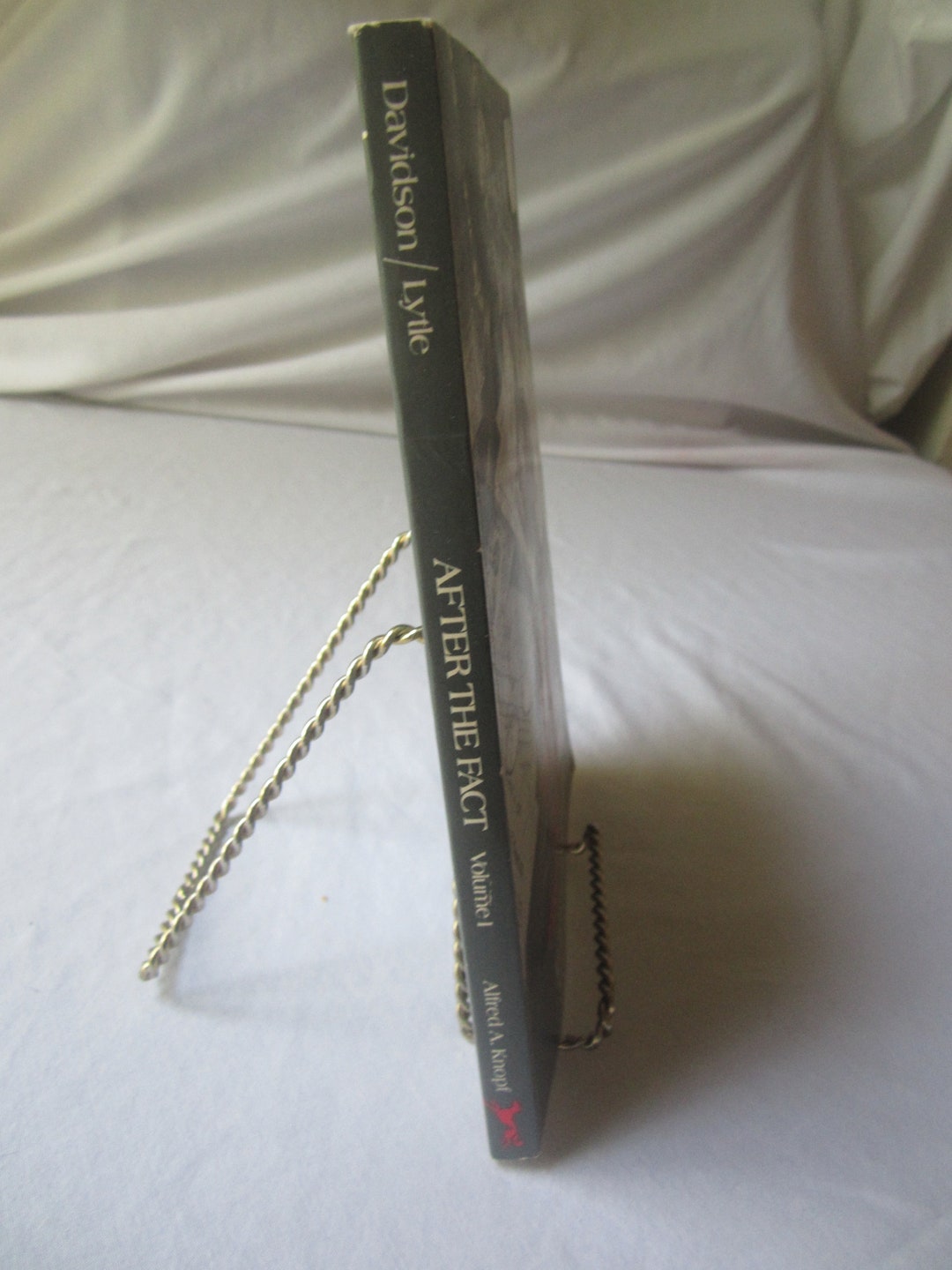After The Fact: The Art Of Historical Detection

Imagine yourself in a dimly lit archive, the air thick with the scent of aged paper and leather-bound volumes. Dust motes dance in the shafts of sunlight filtering through tall, arched windows, illuminating rows upon rows of documents, maps, and photographs. Each item holds a secret, a fragment of a story waiting to be pieced together.
This is the realm of historical detection, a fascinating field where dedicated individuals meticulously sift through the remnants of the past to uncover truths, challenge long-held beliefs, and bring forgotten narratives to light. It is an art that demands patience, critical thinking, and a deep respect for the power of evidence.
Unraveling the Threads of Time
Historical detection, at its core, is about more than just memorizing dates and names. It is a process of investigation, analysis, and interpretation. Historians, archivists, and researchers employ a diverse toolkit of methods to examine primary and secondary sources, searching for clues that can shed light on past events.
Primary sources, such as letters, diaries, and official documents, offer firsthand accounts and direct evidence. Secondary sources, like books and articles, provide interpretations and analyses of those primary sources. The careful examination of both is crucial for building a comprehensive understanding of the past.
The Rise of Historical Detection
The seeds of modern historical detection were sown in the 19th century with the rise of scientific history. Influenced by the Enlightenment emphasis on reason and empirical observation, historians began to apply more rigorous methods to their research.
Figures like Leopold von Ranke, often considered the father of modern historical scholarship, advocated for a "wie es eigentlich gewesen ist" ("how it actually was") approach. This involved a commitment to objectivity and the meticulous examination of primary sources.
The 20th century witnessed further advancements in historical methodology. The development of new technologies, such as radiocarbon dating and DNA analysis, opened up new avenues for investigating the past. Interdisciplinary approaches, drawing on insights from fields like anthropology, sociology, and archaeology, also gained prominence.
The Tools of the Trade
Successful historical detection relies on a range of analytical skills. Critical thinking is paramount. Historians must be able to evaluate the credibility of sources, identify biases, and distinguish between fact and opinion.
Contextualization is equally important. Events and individuals must be understood within the specific social, political, and economic context of their time. Without context, it is easy to misinterpret or misrepresent the past.
Source criticism involves evaluating the authenticity, reliability, and provenance of historical materials. Who created the source? What was their purpose? What biases might they have held? These are just some of the questions that historians must consider.
Archival research is a fundamental aspect of historical detection. Archivists play a vital role in preserving and organizing historical records, making them accessible to researchers. Navigating archives effectively requires patience, attention to detail, and a good understanding of archival practices.
The Impact of Historical Discovery
The work of historical detectives has profound implications for our understanding of the present. By uncovering forgotten narratives and challenging dominant interpretations, they can shed light on the roots of contemporary issues and inform our efforts to build a more just and equitable future.
One notable example is the ongoing effort to uncover the history of slavery and its lasting impact on American society. Through meticulous research, historians have documented the horrors of slavery, exposed the systemic inequalities it created, and revealed the stories of enslaved people who resisted and persevered.
Another example is the growing field of indigenous history. Indigenous historians and scholars are working to reclaim and revitalize indigenous knowledge, challenge colonial narratives, and promote a more accurate and nuanced understanding of the past.
The Ethical Considerations
Historical detection is not without its ethical challenges. Historians have a responsibility to present their findings honestly and accurately, avoiding sensationalism or distortion. They must also be mindful of the potential impact of their work on individuals and communities.
In cases involving sensitive topics, such as genocide or trauma, historians must exercise particular care and sensitivity. It is important to respect the dignity of victims and to avoid perpetuating harmful stereotypes or narratives.
The issue of access to information is another important ethical consideration. Historical records are often subject to restrictions, which can limit the ability of researchers to access and analyze them. Historians must advocate for greater transparency and openness in the preservation and dissemination of historical information.
The Future of Historical Detection
The field of historical detection continues to evolve in response to new technologies and changing societal values. The rise of digital history has created new opportunities for accessing, analyzing, and sharing historical information.
Digital archives provide access to vast collections of digitized documents, photographs, and other materials. Data analysis tools allow historians to identify patterns and trends in large datasets.
Public history is another growing area of emphasis. Public historians work to engage the public with history through museums, historic sites, documentaries, and other forms of media.
As we move further into the 21st century, the role of historical detection will only become more important. In a world increasingly shaped by rapid technological change and complex global challenges, understanding the past is essential for navigating the present and shaping the future.
A Constant Quest
Historical detection is a journey, not a destination. It is a continuous process of questioning, investigating, and reinterpreting the past. The stories we tell about ourselves and our world are constantly evolving, and the work of historical detectives helps to ensure that those stories are as accurate, nuanced, and inclusive as possible.
By embracing the art of historical detection, we can gain a deeper understanding of ourselves, our communities, and the complex tapestry of human experience.
Ultimately, the pursuit of historical truth is a vital undertaking that enriches our lives and strengthens our connection to the past.


















